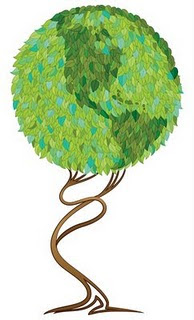As you know, Jews do not celebrate "Christmas" but in this time We share the principal reason for this Christian day feast: Love, Charity and Fraternity. So, here's a message to all who celebrate Christmas.
Merry Christmas!
Hey you, where you go so fast?
I know you have little time ...
But do give me a few minutes of your attention?
I realize that many people in the streets, running like you.
Where goes everyone?
The shopping-malls are crowded ...
Children are dragged by parents rushed, amid the turmoil ...
There is a widespread rush ...
Food and beverages are stored ...
And the gifts then? There are so many to buy...
I understand that you have little time.
But what is the reason for the rush?
I realizing, too, the lights adorning shop windows, streets, houses, trees ...
But I confess, I see little sparkle in eyes ...
Few smiles and friendly, little patience for a fraternal chat ...
It's nice to see lights, colors, abundance of food and materials goods ...
But it would be so nice to see smiles francs ...
Handshake lengthy...
Hugs tenderness ...
More gratitude ...
More love ...
More compassion
Perhaps you've never noticed that there are people who offer gifts by mere interest ...
There are hugs colds and calculating...
Which family members hate each other, without the slightest willingness for reconciliation.
But since you lent me a few minutes of your precious time, I would ask again - Why do you hurry?
Amid the turmoil, sitting on the curb, a homeless, maybe drunk, screaming loudly, "living The Messiah, Merry Christmas!
And the "sober" person make a comment: "He's crazy. "
And the City preparing the Christmas ....
But for that you still have time to ponder the true meaning of Christmas, I dare say:
Christmas is not just a festive day, the essence of Christmas should be a way of life.
Christmas should be the expression of love ...
And those who live without love does not know the charm of the sea that incessantly caresses the beach in a back-and-forth constant ...
Christmas is a fraternity...
And life without brotherhood is like a river without a bed, a moonless night, a child without a smile, a star without light.
But Christmas is also a union ...
And life without marriage is like a cracked boat, a bird with broken wings, a sailor lost at sea without end.
And finally, Christmas is a pure expression of love ...
And life without love is disabled for peace, because in its intimacy, not blowing the breeze of dawn, and no one else realizes the scenario multicolored sunset.
Living without peace is like sailing without a compass on a dark night ... It is not aware of the ways that emphasize the soul and gives meaning to life.
Anyway, life without love ... Well, life without love is mere illusion.
May this Christmas be for you more than parties and exchanging gifts.
May the Christmas be a lasting mark on your lifestyle.
Author Unknown
Hallelujah (Halelu-Yah means literaly "Praise the L-rd")











.jpg)






